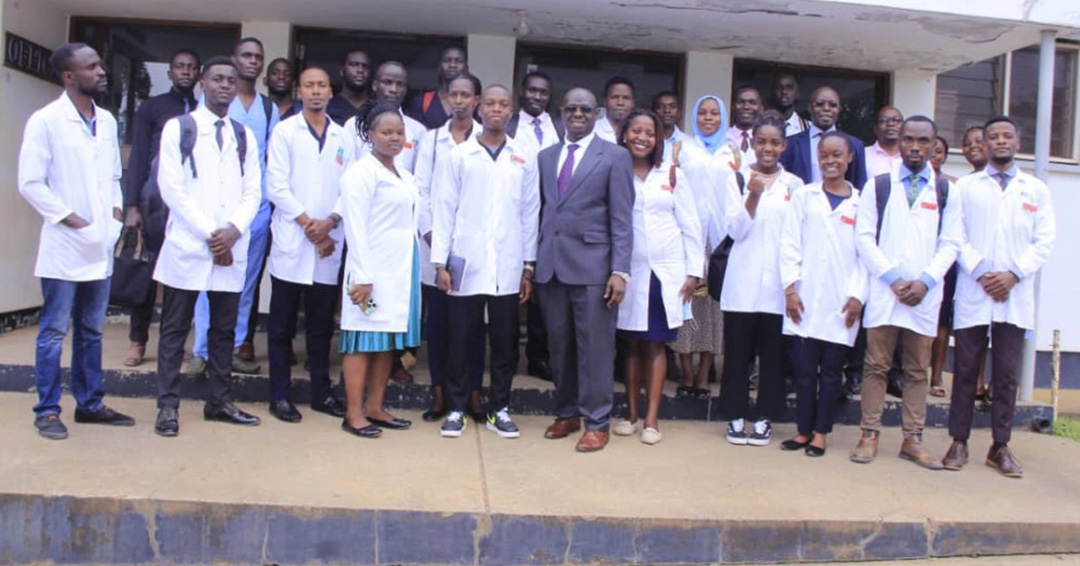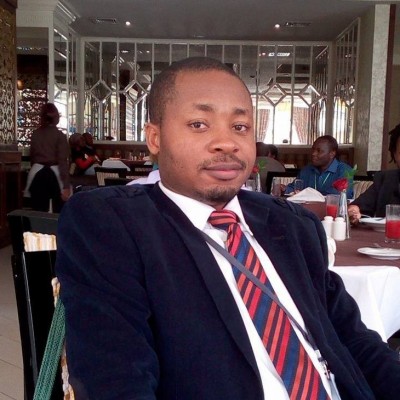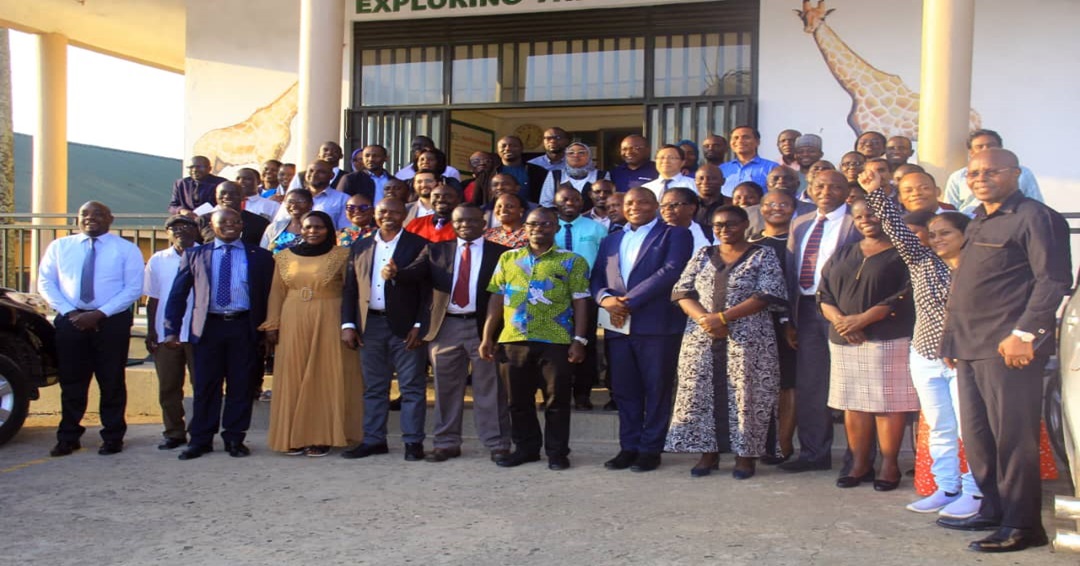
Sep
KIU Teaching Hospital Strengthens Partnership With Kitagata General Hospital
September 5, 2024, 9:40 am
 Obinna Osigwe
Obinna Osigwe

By Shawn Kimuli
KIU, Western Campus - In a bold move to reshape higher education in Uganda, Kampala International University (KIU) hosted a transformative workshop to equip educators with modern teaching strategies to enhance graduate employability. The workshop, held at KIU Ishaka Campus, brought together academic leaders, researchers, and facilitators to explore innovative approaches to teaching, research, and digital transformation in higher education.
Themed 'Training of Trainers in Higher Education Teaching and Learning to Enhance Employability of Graduates,' the event sparked critical discussions on curriculum reform, student-centred learning, and the role of digital technology in education.
A Call for Practical, Lifelong Learning
Rev. Dr. Cyrus Ssebugenyi, delivering the keynote address, challenged educators to rethink traditional teaching methods and embrace practical, skill-based learning. 'Our role as educators is not just to deliver knowledge but to cultivate adaptability and lifelong learning,' he emphasized. He highlighted the importance of extended internships and industry collaborations to ensure students gain hands-on experience before graduation.
He commended KIU for integrating vocational skills into its academic programs, noting that a degree alone no longer guarantees success. Students must combine academic qualifications with hands-on skills to compete in today’s workforce.
Interactive and Inclusive Teaching Approaches
Dr. Peace Buhwamatsiko Tumuheki, an expert in adult education, urged universities to shift from lecture-heavy, teacher-centred approaches to interactive, student-driven learning models. "The traditional ‘chalk-and-talk’ method is outdated. We need innovative teaching strategies that keep students engaged and encourage critical thinking", she stated.
She also stressed the need for inclusivity in education and advocated for better learning accommodations for students with disabilities such as dyslexia, visual impairment, and hearing challenges. Every student deserves a learning environment that supports their abilities and helps them succeed," she emphasized.
Bridging the Gap Between Curriculum and Industry Needs
Dr. Gideon Nkurunziza led an engaging session on curriculum transformation, emphasizing the need for problem-based learning, self-evaluation, and continuous adaptation in education. 'Educators must master modern teaching techniques. Self-evaluation and constant improvement are key because the world is changing rapidly,' he noted.
He traced the evolution of curricula, explaining that while past education models (1960–1980) focused purely on knowledge acquisition, modern curricula (2000–present) emphasize outcome-based learning and skill development. "The future belongs to those who master vocational skills alongside academic knowledge", he remarked.
The Role of Research and Innovation in Higher Education
Professor Sapphira Bbira facilitated a thought-provoking discussion on graduate research, training, and publication. She called on universities to foster a research-driven culture that empowers students to contribute to knowledge creation and innovation. She highlighted the importance of policy briefs, patents, and intellectual property rights, stressing that research should be linked to real-world applications.
"Informed and innovative teaching, combined with global collaborations and networking, is essential for problem-solving", she stated. Professor Bbira also commended KIU’s growing number of professors, emphasizing that this strong academic capacity must be fully utilized to drive impactful research and innovation.
Commitment to Excellence & Graduate Success
As the workshop concluded, Dr. Ssebugenyi reinforced the importance of aligning teaching with National Council for Higher Education (NCHE) standards while adopting modern, competency-based assessment methods.
'It’s not just about what students know—it’s about what they can do with that knowledge,' he stressed.
The workshop affirmed KIU’s leadership in academic innovation, with a clear focus on multidisciplinary programs, industry collaboration, and hands-on training. As the training continues, facilitators remain committed to reshaping higher education, ensuring that KIU graduates enter the workforce with the skills, adaptability, and confidence to excel.
Kampala International University,
Box 20000, Ggaba Road, Kansanga, Kampala
+256-760 502660
+256-700 100808